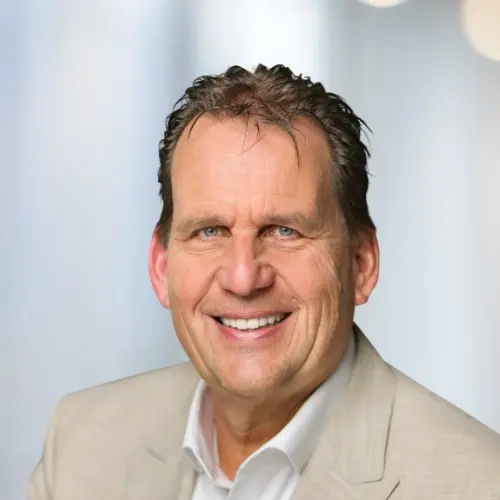If you were to use BrainE4 again, do you think the initial distrust would be lower?
Absolutely. Then it’s gone. Through the feedback to the entire organization, we were able to show that it’s anonymous and helpful. People quickly realized: we’re working on the issues.
How did you communicate the results to the workforce?
Comprehensively. The leadership levels in the countries and departments directly addressed the key topics with their teams.
In the cross-regional town hall meeting, we said: «These are the points that came up. We’re working on them.» There were things we solved immediately. For example, employees complained that they had to pay for coffee. I didn’t even know that. That’s unacceptable! We changed it while BrainE4 was still running.
That was noticed immediately.
Exactly. That’s how employees realized: «Something is happening even while the online dialogue is still ongoing. My opinion counts.»
The connection to the employees went…
…incredibly direct. And this was deepened afterward in the town hall meeting, when we provided comprehensive feedback.
«We were able to engage all employees, from the cleaning staff to the members of the executive management.»
Was it a problem for you that the coffee issue and the company’s US expansion strategy were commented on and rated at the same time?
No. If you take people on a cultural journey, you have to listen comprehensively and not exclude individual topics. Which strategic priorities emerge from that is then our responsibility in the executive management. But we want to engage all employees, from the cleaning staff to the members of the executive team. Because everyone has a different perspective.
What is the key takeaway for you?
BrainE4 is your direct line to your employees. An instrument I've never seen in this form before. A tool that gives me the opportunity to quickly and easily feel the pulse of the company. With conventional employee survey tools, you get numbers, figures, and bar charts, but little concrete feedback in the form of individually formulated suggestions that colleagues can additionally rate.
And because you were new to the company, was that even more important than if you had been CEO for five years?
Yes, and yet we're using BrainE4 again. Because I also want to see: how does it change? People now know the process. Maybe they'll become even more critical. That's fine by me. They see: «Something happened – they actually read what we write!»
You could also submit and test hypotheses yourself. Was that important for you?
Yes, very much so. Our HR department did that together with Ekki and the BrainE4 team because we also wanted to solidify our cultural pillars a bit.
But of our seven topics — they were based on input from the previous cultural journey before my time — only two «survived.» The rest came from the employees.
So there was a lot of creativity and the realization that people had different priorities than we and the previous management had thought. That was really interesting.
«A truly great personal experience, I have to say.»
What is your conclusion?
A powerful leadership instrument that we need to explain well. But BrainE4 is excellent and has proven itself.
Who would you recommend BrainE4 to?
Everyone! Anyone who values culture within their company. If you're open to feedback — especially critical feedback — this is an excellent instrument.
Did you have any concerns about data security?
Medartis experienced a cyberattack two years ago and is very sensitive to the topic.
So we thoroughly tested the instrument, and our data protection officer also conducted the necessary analyses. We found no security gaps or any risks.







